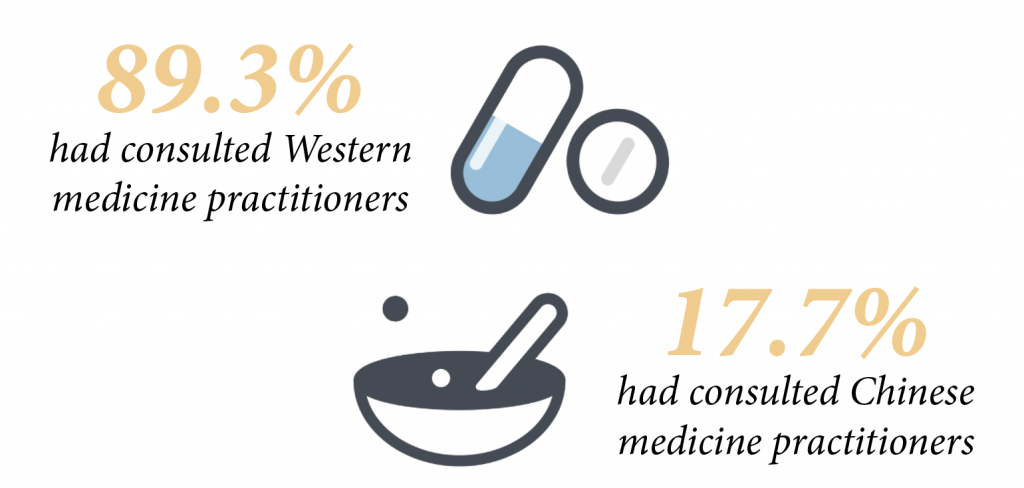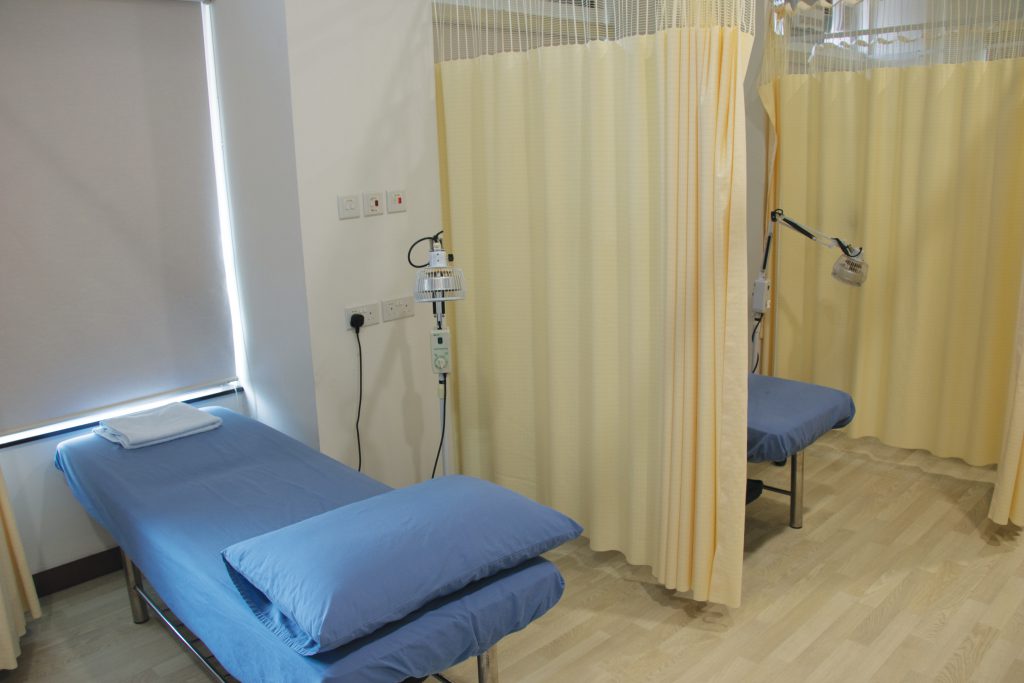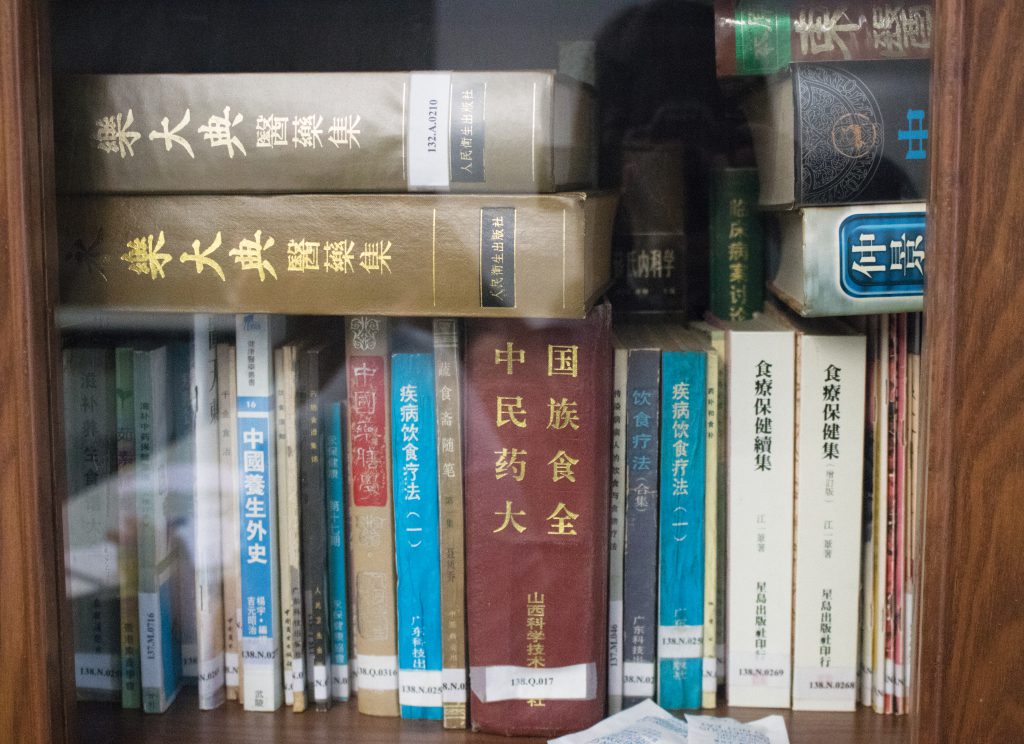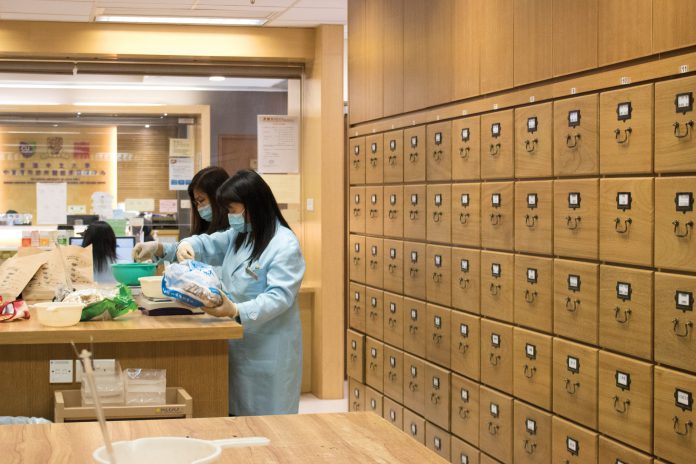Hong Kong’s first Chinese medicine hospital is expected to open in late 2024
By Bonita Wong & Wayne Chang
Western medicine has always been a core element of Hong Kong’s public medical system. But with the launch of the city’s first Chinese medicine hospital, a change of government’s attitude may turn the tide.
Highlighted in the 2018 Policy Address, Hong Kong’s first Chinese medicine hospital will be a “flagship institution” for the sector. The government will subsidise certain in-patient and out-patient services. The 400-bed hospital is expected to come into operation by phrases from late 2024.
The idea of setting up a Chinese medicine hospital first emerged in 2014, and a site in Tseung Kwan O was reserved for the project.
Utilisation of human resources
Chinese medicine practitioners hope this new facility can help the industry better utilise its manpower. According to a survey published by the Census and Statistics Department in 2015, almost 90 per cent of the population consulted practitioners of Western medicine, whereas less than 18 per cent consulted Chinese medicine ones.

“There is an oversupply of human resources,” says Sung Chun-kei, chairman of Union of Frontline Chinese Medicine Practitioners (Hong Kong). He notices a serious imbalance in doctor-patient ratio when it comes to traditional Chinese medicine.
According to Sung, the number of Chinese medicine practitioners is now about 10,000. Although the population size of Western medicine doctors is slightly larger, they can work on different platforms, such as hospitals and specialist divisions. But Chinese medicine practitioners are only serving a smaller group of patients.
Apart from providing more opportunities, the future hospital is believed to be able to enhance the development of Chinese medicine. “We know the government has been actively exploring the role of Chinese medicine in healthcare. Initially, they did not know much about the functions of Chinese medicine. But now you can see the government has a clearer picture of the positioning of it,” Sung says.
As announced in the 2018-19 Budget, a Chinese Medicine Development Fund of HK$500 million is set up to facilitate applied research and Chinese medicine specialisation. Part of the fund is dedicated to promoting public awareness and nurturing talents for Chinese medicine hospital.
Management and ownership of Chinese medicine hospital
To maximise the room for further development, the Chinese medicine hospital will be operated by a non-profit organisation on a self-financing basis. The government will finance the construction and select an operator through tendering procedures.
The ownership arrangement has received divided responses among stakeholders. The plan is not welcomed by some practitioners like Sung. He says: “We have a very clear stance: we want the government to fully own the hospital.”
Sung also expresses worries over the sustainability of the project. “To achieve long-term development of Chinese medicine, the government itself must take the responsibility. What if an NGO (non-governmental organisation) quits after running the hospital for 10 years? Then, the government would have to look for another one. Would this affect the business model and the quality of services?” he asks.
Sun Siu-yan, Officer of Union of Frontline Chinese Medicine Practitioners (Hong Kong), says the proposed mode of operation has some advantages. She, however, recalls how Dr Cheung Wai-lun, Project Director of the Chinese Medicine Hospital Project Office, addressed their concerns in a meeting.

“During the start-up period, Cheung said, if the hospital was solely managed by the Hospital Authority, there would be many constraints imposed by the government, unlike the flexibility that is available now for discussions. If an NGO administers the hospital, we can easily make amendments when we feel like something is not working well,” she says.
Contribution of Chinese Medicine Centres for training and research
Despite having less ownership, Sun believes the government is still proactive in the planning of the hospital. She says the government has taken reference from its previous experience in running the public Chinese Medicine Centres for Training and Research (CMCTR).
Based on the information of Legislative Council papers, CMCTR operate on a tripartite collaboration model, which involves the Hospital Authority, NGOs, and local universities. NGOs are responsible for daily operations of the centres. There is one CMCTR in each of the 18 districts in Hong Kong.
“The government has acknowledged problems in CMCTR that need to be solved immediately. The government’s role is to improve the situation so that these issues do not resurface at the Chinese medicine hospital. The problems mainly revolve around resources allocation,” says Sun.
Collaboration of Chinese and Western medicine in the hospital
Other than ownership, another controversy lies in the adoption of an Integrated Chinese-Western Medicine service model. Western medical equipment and treatment have always been crucial for curing acute cases and complex illnesses. Due to existing legal regulations, Chinese medicine practitioners are forbidden to carry out Western medical procedures.
In fact, the collaboration between Chinese and Western medicine has been in practice for some years. Cooperating with tripartite CMCTR, the Hospital Authority has launched the Integrated Chinese-Western Medicine Pilot Programme since 2014. Eligible patients can receive Chinese medicine treatments at designated public hospitals. More importantly, they serve as testing grounds to incorporate Chinese in-patient medicine and explore plausible clinical frameworks for the future hospital.
However, Professor Joseph Lee Kok-long, legislative councillor for the health services functional constituency, stresses that the new hospital “should be a purely Chinese medicine practitioner-operated hospital”. When discussing the handling of severe illnesses, he believes acute cases should not be handled there.
“Traditionally, a Chinese medicine hospital should not have operation rooms. If you need to stay in the [Chinese medicine] hospital, you are purely receiving Chinese medicinal treatment, instead of being intervened by Western doctors,” he says.
Lee believes the establishment of the Chinese medicine hospital carries a symbolic meaning for the whole industry. It reflects that the government recognises the significance of Chinese medicine. Historically, the first hospital in Hong Kong, which was operated by the Tung Wah Group of Hospitals 150 years ago, was also a Chinese medicine hospital.

Rather than advocating exclusive use of Chinese medicine in the new Chinese medicine hospital, Professor Lin Zhixiu, Associate Director at the School of Chinese Medicine at the Chinese University of Hong Kong (CUHK), holds a different view. “In terms of medical techniques, the relationship of Chinese and Western medicine should be complementary. Also, they should respect each other,” he says.
Lin says it is necessary to resort to Western medicine practitioners in times of emergency. They can carry out blood tests, X-ray examinations and prescription of Western medications.
In general, Lin is optimistic about the establishment of the Chinese medicine hospital. “It can enhance the overall remuneration level of the sector. As the Chinese medicine hospital is the leader in clinical research in Hong Kong, hopefully it can raise the professional standard of the industry,” he says.
Edited by Sarah Poon










































